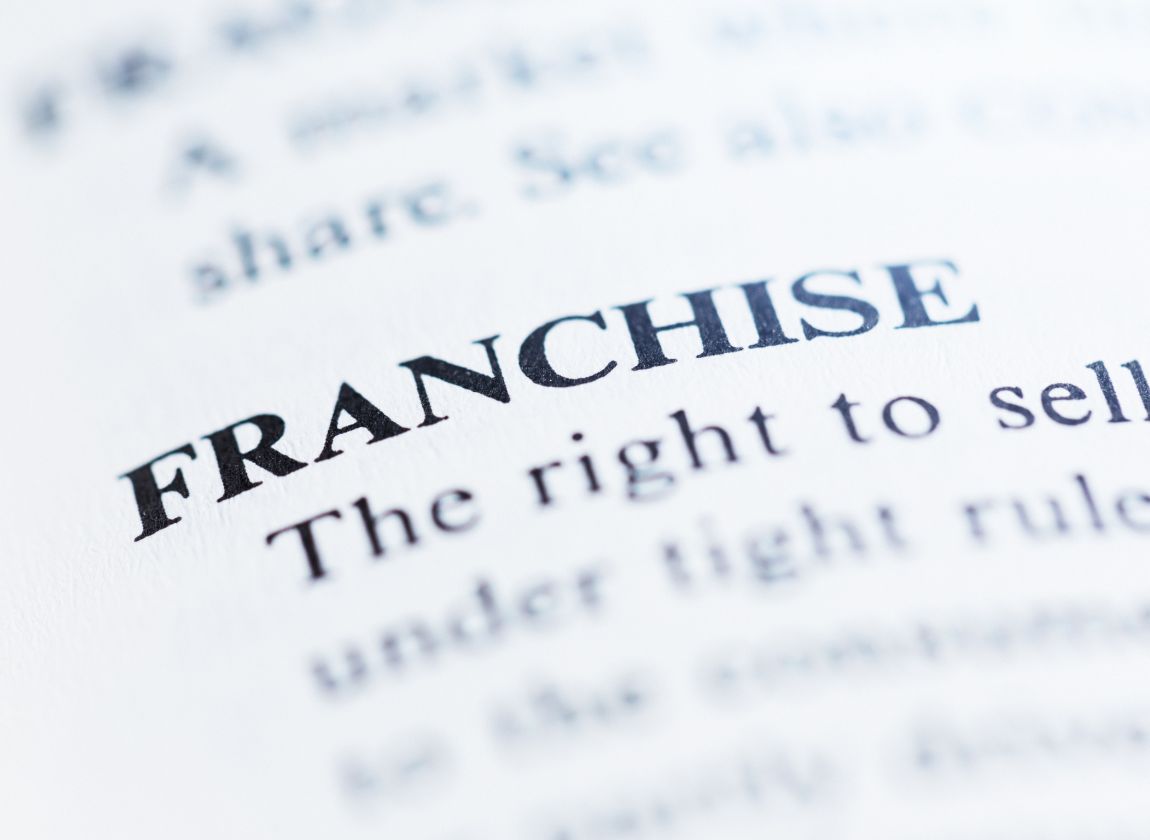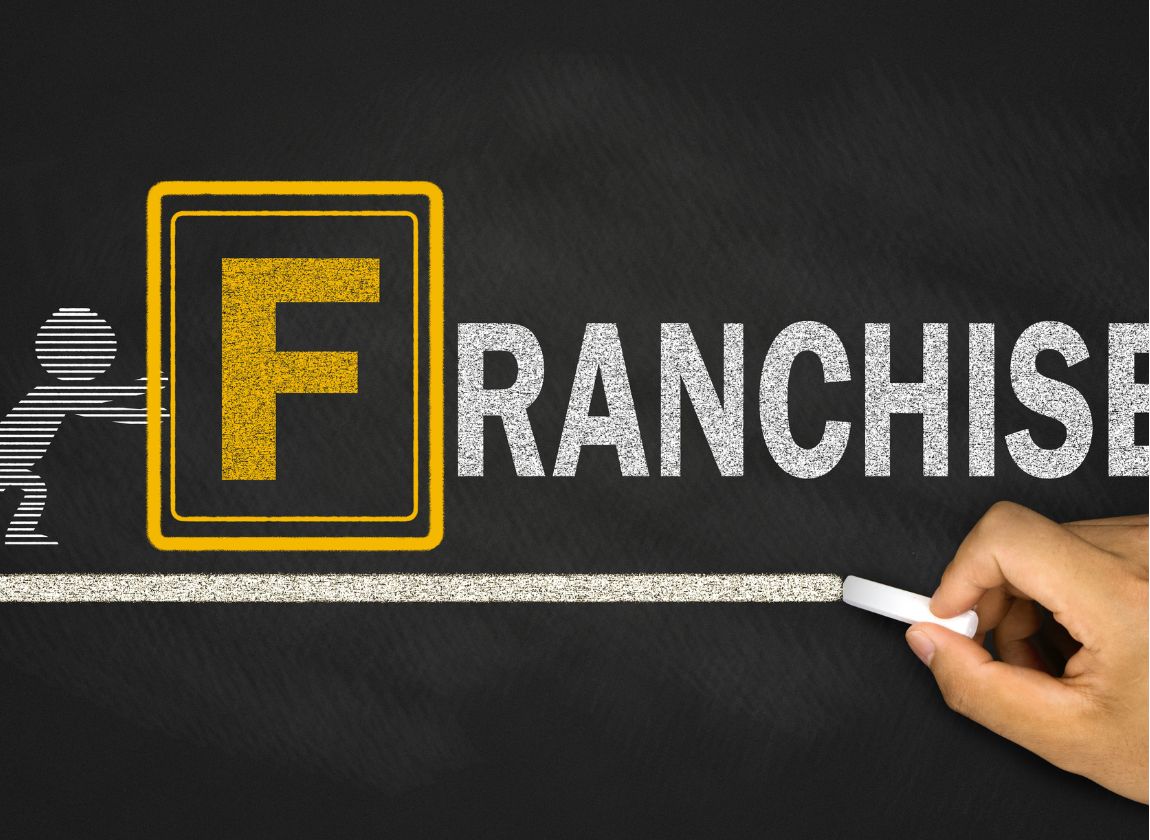Popular tags
Popular articles
%20(1150%20x%20840%20px)%20(1150%20x%20840%20px).png)
January 26, 2026
How Much Does a Wellness Franchise Really Cost in 2026?
January 26, 2026
What to look for in a Franchise Disclosure Document (FDD)
October 7, 2025
Why Invest in a Franchise? Key Benefits to Consider%20(1150%20x%20840%20px)%20(1150%20x%20840%20px).png)
January 26, 2026
How Much Does a Wellness Franchise Really Cost in 2026?
January 26, 2026
What to look for in a Franchise Disclosure Document (FDD)
October 7, 2025
Why Invest in a Franchise? Key Benefits to ConsiderThe fitness industry is thriving. From boutique studios and personal training gyms to large scale health clubs, more people are prioritizing health, wellness, and active living than ever before. For aspiring entrepreneurs, owning a gym or fitness franchise can be both financially rewarding and personally fulfilling, but success depends on choosing the right concept and doing proper due diligence.
Before you make the leap, it’s essential to understand the validation process, advantages and drawbacks, financial commitments, and key considerations that come with fitness franchise ownership.
Before investing in any fitness franchise opportunity, validating the concept is your most critical step. This process helps you determine whether the franchise aligns with your goals, market, and long-term vision.
1. Review the Franchise Disclosure Document (FDD):
This legal document outlines everything from fees to litigation history. Pay close attention to Item 19 (financial performance representations) and Item 21 (financial statements) to evaluate the franchisor’s profitability and stability.
2. Analyze Market Demand:
Study fitness trends in your area. Is there demand for high intensity training, boutique classes, recovery services, or wellness add-ons? Look at demographics, income levels, and competition. Local data can help determine whether your market is saturated or underserved.
3. Speak with Current Franchisees:
Franchise validation isn’t just paperwork, it’s personal. Talk to existing owners to understand their real world experience. Ask about revenue, challenges, operational support, and whether they’d reinvest in the brand.
4. Assess Brand Reputation:
Search online reviews, social media presence, and testimonials. Brands with strong social proof and consistent customer satisfaction typically perform better in the long run.
5. Evaluate Franchisor Support Systems:
Look beyond the sales pitch. A strong fitness franchisor provides ongoing training, marketing guidance, lead generation tools, and operational support to help new owners ramp up quickly and maintain consistency.
Owning a fitness franchise isn’t just about passion, it’s about smart planning and clear expectations.
1. Ownership Role:
Decide whether you’ll be an active owner managing daily operations or a semi-absentee investor overseeing management. Your level of involvement directly impacts staffing and profit margins.
2. Location Strategy:
Visibility and accessibility are vital. Choose a site near complementary businesses, residential areas, or shopping centers with steady foot traffic.
3. Brand Strength:
Nationally recognized fitness brands often attract more members at launch. However, smaller boutique franchises can offer greater flexibility and faster local growth.
4. Retention Systems:
Recurring membership revenue is the foundation of a profitable gym. Look for a franchisor with proven systems for member retention, referrals, and customer experience.
5. Exit and Resale Options:
Consider how easy it will be to sell your franchise if your goals change. Established brands with high demand often have strong resale value and smoother transition processes.
Costs can vary significantly depending on brand, size, and location. Here’s a general breakdown of what to expect when investing in a gym or fitness franchise:
Before signing any agreement, review the Franchise Disclosure Document (FDD) and consult with a franchise attorney or consultant to ensure you understand your obligations and return potential.
A fitness or gym franchise can be one of the most rewarding ventures you’ll ever pursue, combining personal passion with business ownership. But like any investment, it demands research, financial planning, and consistent operational discipline.
If you’re driven by helping others achieve better health while building a profitable enterprise, the fitness industry offers tremendous opportunity.
At Ideal Consulting, we specialize in guiding entrepreneurs through every stage of franchise evaluation, from FDD review and financial analysis to brand comparison and more.
Connect with us today to explore the best fitness franchise opportunities and discover which model aligns with your goals, lifestyle, and investment capacity.